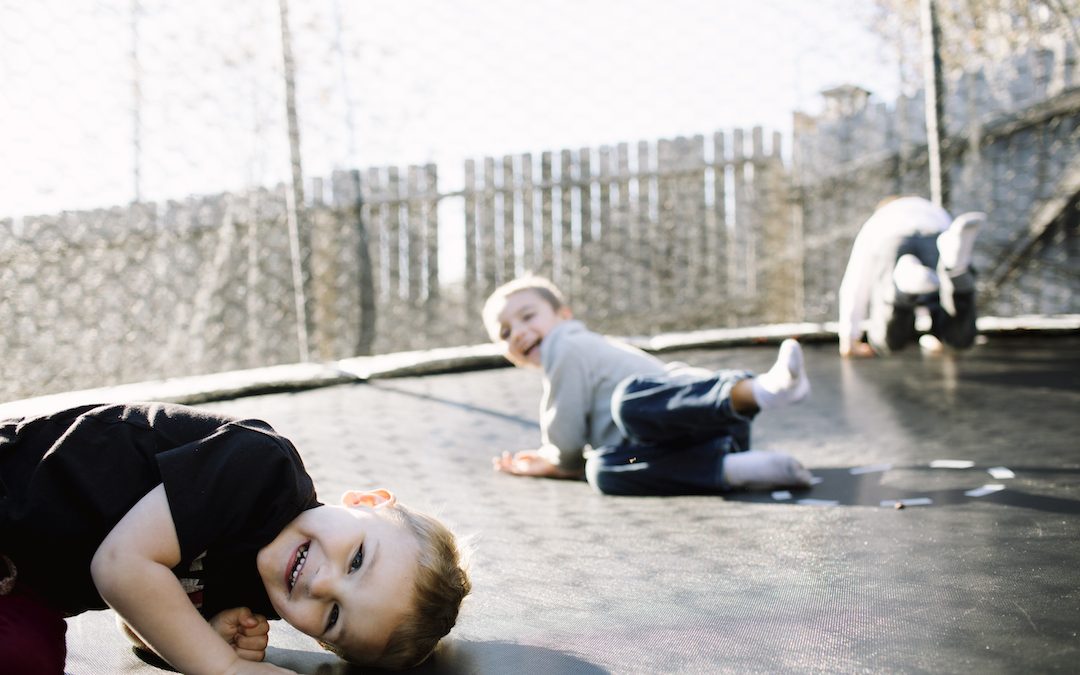
by Rachel Toalson | Crash Test Parents
A few weeks ago I got a text from my sister, who had her third baby in February. The text said, “Tell me you have days when you just can’t handle it. When walking out of the house is all you can do to survive. I just need to hear it from another human.”
I laughed out loud, even though I knew she was dead serious. And in my head were responses like “every single day” and “just this morning” and “on a minute-by-minute basis.”
Parenting is hard. It’s the hardest thing I’ve ever done, and I used to run six miles every morning in Houston’s 10,000-pound humidity before commuting an hour to downtown’s Houston Chronicle office. I used to marathon-train on ten miles of hills pushing a double baby stroller that carried a 4-year-old and a 3-year-old. I used to work for a narcissist.
Parenting is still the hardest thing I’ve ever done.
There are so many hours of my day that I just feel like giving up and hitch-hiking to downtown San Antonio’s Riverwalk, where Husband and I had a life before children—a life that didn’t include a panic attack every time a kid steps too close to the edge of the path and I imagine having to jump into that river’s dirty black water to save him.
Like the morning last week, when the 3-year-old twins went outside into our very safe (normally) backyard while I transferred a load of laundry from the washing machine to the dryer. Two minutes, tops. That’s all it took. By the time I finished, one of the twins had come back inside, and the whole house smelled like gasoline.
“Why does the house smell like gasoline?” I said, to no one in particular. The twin looked at me. I looked at him. He had his guilty eyes on.
“What were you doing out there?” I said.
“Nuffing,” he said.
I knew it was definitely something, because of those guilty eyes. A mom always knows, after all.
His twin brother came in smelling like a gas pump, so I looked out on the deck, where they didn’t even have the foresight to hide what they’d been doing. There, on a deck chair, was a gas can their daddy uses to fill up the lawn mower the three times a year he mows. That gas can is stored behind a locked door. A locked and sealed door that somehow, SOMEHOW, these Dennis the Menaces had cracked open in less than two minutes.
They poured gasoline (less than half a gallon, for those who are concerned) all over the back deck, the grass, and themselves. It’s a good thing no one in my house smokes, because we all would have been blown to high heaven.
I put them both in the bath (which was not on the schedule for the morning) while the baby stayed downstairs in his jumper seat wailing because he doesn’t like to be alone, and washed them, rinsed them, scrubbed them, rinsed them and washed them again. Husband sprayed off the deck (which also wasn’t on the schedule for the morning) and saturated all the grass, because a Texas summer hits 4,000 degrees, and we were afraid the sun might make the gasoline-drenched grass spontaneously combust and blow us all to high heaven anyway.
That morning was one of those give-up days, because there’s no way to be one step ahead in my house. There’s no way I can fully toddler-proof every room. There’s no way I can keep them out of every single thing they find to amuse themselves. It would take twenty-three of me, and as far as I know, cloning is considered unethical.
That morning I wanted to walk out and let them fend for themselves in gasoline-scented clothes that spread their stench all over the house in less than two seconds.
I used to feel guilty when feelings like this crept up. I used to beat myself up for sometimes wishing that they just weren’t twins, that there weren’t two of them ALL THE DANG TIME, that they weren’t so insatiably curious and 3 years old and nearly impossible to parent right now.
But there is something important I’ve learned in my years of parenting: Just because there are moments when we want to run away, when we want to flat-out give up, when we want to trade our challenging kids for easier kids for just this little moment in time so we can catch up and learn to appreciate them again, it doesn’t mean that we don’t still love them with a love that is never-ending.
These little, irrational humans can be the best and worst people we know on any given day at any given moment.
There are days when I want to sit down and color next to my 3-year-olds, because they’ve been playing so well together and the morning’s disasters have been minimal, and, gosh, I just love them so much, and then there are mornings when I want to put them on Craig’s list’s free page (I’d have to lie to really sell the idea, though. Something like “Two well behaved twins, of undetermined age.” Because what kind of crazy person would want two 3-year-olds voluntarily?)
There are hours when I love to comb through those old picture albums that show these two hooked up to machines because they were premature and remember how I fretted and cried and tried my best to help them learn how to eat, and there are days when those first moments feel like entire lifetimes away from this moment, when they stuck their whole arm in the just-used toilet to see what poop floating in pee feels like (They already know. We’ve done this drill before.).
There are minutes when I pull them into my lap and kiss all over their faces until they’re giggling uncontrollably, because they’re getting so big and so fun, and then there are minutes when I’m half-heartedly holding their big brother away from them so he doesn’t clobber them for marking all over his journal with a giant red permanent marker they found lying around somewhere (who keeps giving us permanent markers? Please stop.).
Parenting is not for the weak. This is the hardest responsibility we will ever have in our lives. Raising another human being to be a decent person is not easy, and there are many times along our journeys when we will feel like giving up and giving in and giving out.
It just comes with the territory.
So I fire off my response to my sweet sister. “Yes,” I say. “Just about every day. Doesn’t mean you’re a bad mother.”
Because it doesn’t.
These moments when we feel the tension between wanting to give up and knowing we can’t make us stronger parents. They make us better people. They drag us into a deeper understanding of love.
Good thing, too. Because my toddler just figured out how to open a can of paint Husband left unguarded and now the pantry wall has a Thermal Spring scribble-masterpiece drying on it.
I’m going to be one amazing person by the time this is all over.
This is an excerpt from Parenthood: Has Anyone Seen My Sanity?, the first book in the Crash Test Parents humor series. To get access to some all-new, never-before-published humor essays in two hilarious Crash Test Parents guides, visit the Crash Test Parents Reader Library page.
(Photo by This is Now Photography.)
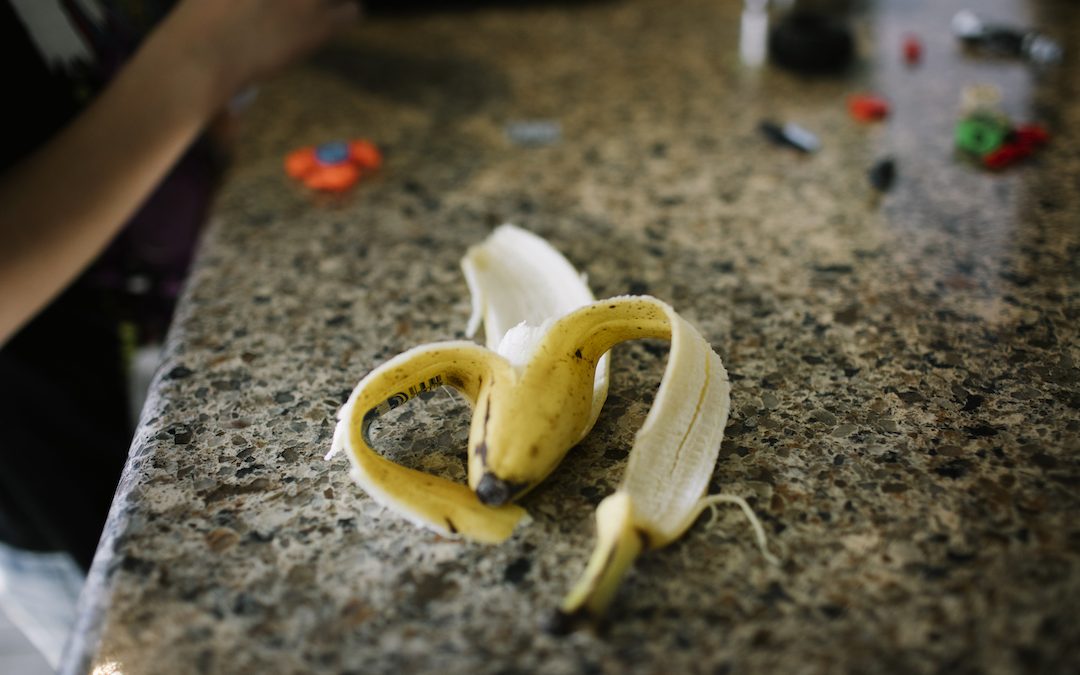
by Rachel Toalson | Crash Test Parents
Kids are the greatest, aren’t they? You tell them to handle that glass with care (they weren’t supposed to have it in the first place, but they’re getting older; everybody deserves a chance to prove themselves), and as soon as they nod their agreement, the glass slips out of their hands and shatters on the floor, milk splattering all over the cabinets.
They just wanted you to have something to clean up.
This is only one of the ways children love their parents. There are several more, including
1. Knees and elbows everywhere.
Any time I’m sitting in a chair, minding my own business (usually reading), a boy will launch himself into my lap. And by launch, I mean with missile-speed. If the book doesn’t take my face off, an elbow or knee will do the trick. I’ve almost lost teeth in the launch process.
If I happen to stretch out on the floor for a moment of meditation (or a short ten-minute nap), boys will climb all over me, jump off me, try to turn me over. They are the boniest creatures I’ve ever known. I wear more bruises on my body than I ever did when I played high school volleyball.
2. All the things they leave out.
My boys have one talent that rises above all the others: making a mess. They walk out of their shoes and their clothes, and when they’re doing art, they forget where pencils go and how to put away paper. They are constantly leaving apple cores in places where apples aren’t supposed to be consumed.
I’m sure they’re just trying to show me how much they love me: I’m still needed, after all.
But I swear, if I have to pick up one more smashed banana, I’m going to leave a vomit offering on their pillows, along with a note that says, “I love you back.”
3. Telling all our secrets.
My boys talk about Husband and me all the time, and because they spend the bulk of their time at school (and, consequently, miss us terribly), they air these secrets to their teachers. Their teachers now think we are parents who sing songs about bodily functions, hold regular burping contests (they’re not really contests; I’m the defending champion, and the others don’t even come close. It’s really just a concert.), and arm-fart their prayers. They probably think we’re the most immature parents ever.
Oh well. At least they haven’t told about the Drunk Daddy routine. Yet. (If they have told you about this, kindergarten teacher, don’t worry. It sounds worse than it is. Daddy is not a drunk. He pretends to run into doors and hurt himself. That’s all.)
4. Watch this.
It never fails; I’m right in the middle of doing something important—trying to figure out whose underwear is whose, for example—and one of my boys will shout out: “Watch this, Mama!” It could be that he wants me to watch a car go down this amazing track he built (it’s the car with the broken wheel, which means it will take the car forever and a day to limp down the track), or he wants me to watch a flip on the couch (he’ll hurt his finger in the process and it will take me fifteen minutes to kiss away the pain), or he wants me to see that he’s mooning me (he’ll only do that once).
“Watch this” is just code for “I love you so much.”
5. Drawings on important papers.
Every time I have to return a paper to their school or to the doctor’s office or maybe to my publisher or agent, I will find drawings—some tiny enough to be dismissed, some large enough to require a new copy; good thing the school always sends five copies of everything—on them.
I’m sure all they’re saying is, “I am here.”
And I’m so glad they’re here, glad for every way they show me they love me.
Most days.
(Photo by This is Now Photography.)
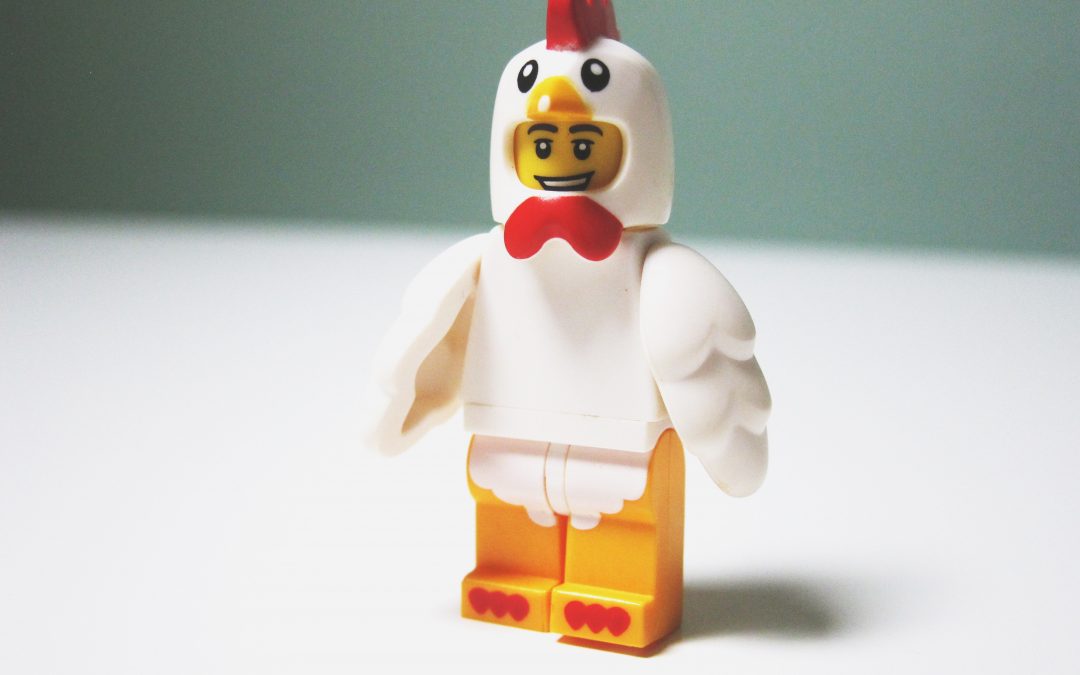
by Rachel Toalson | Crash Test Parents
Let’s just talk for a minute about LEGOs.
I love LEGOs. I really do. They are so much fun to play with. I’m just as guilty of spending an afternoon trying to put together a fire station that Spider-Man is trying to save from the bad guys as my kids are.
The problem is that back when we made the decision to start collecting LEGOs, the oldest was already 7, and he really wanted to collect ALL the Star Wars sets. Which was fine, because Husband likes Star Wars, too, and I don’t mind it so much either, because George Lucas is about the coolest person in the world. But what we didn’t think about when we made the leap was how all of those sets would become one big set.
The oldest has seven different LEGO Star Wars sets, and they somehow became four bins of LEGOs. It would take years to put those sets together the way they were intended to be put together, and I guess I should be thankful for all the things he does with them instead (he made a near exact replica of our house once out of the LEGOs), but the thing is, I really wanted to see what those sets looked like put together, and I never got to. I probably care way more about this than my kid does.
The other, bigger problem is that when it’s time to clean up LEGOs, it’s pretty much impossible to clean them all up. When we tell our boys it’s time to clean up, they’ll look at just the one bin they’ve dumped out and they will already feel completely overwhelmed and unable to complete such a daunting task, because there are a billion tiny little pieces, and even after overcoming that initial resistance and getting started, there’s no way they’ll put away every piece. Kids are practically blind. It’s impossible to clean up all the LEGOs. Some pieces get knocked beneath the carpet in the dining room. Some get shoved under the sofa table behind the couch, and they will surface days after we lock their bins away in the garage, or sometimes they will make an appearance in mere hours, usually because someone has knocked something else out from under the couch and this culprit brings with it an overlooked LEGO piece that either (a) reminds my kids they have LEGOs or (b) remains invisible, trapped in carpet fibers so that the next time I kneel on the floor it will slice my knee cap in half.
When my boys play with LEGOs in our house, the LEGOs can do nothing else but explode. And by explode, I mean they explode—go everywhere imaginable. I’ve had one in a sock before, and I have no idea how it got there. I’ve sat on one hiding under the bolted-down cushion of a chair (you think it hurts to step on a LEGO piece? Try sitting on one and you tell me which one hurts more.). I’ve found them in the boys’ shoes, in plant pots, inside the piano bench (someone’s trying to play me. There’s no way a LEGO piece could crawl into a closed piano bench nook.).
It doesn’t matter if there’s one bin out or three of them, the mess and its disaster will be exactly the same.
And then, when the 8-year-old decides that he’s made the very definition of a masterpiece, he always wants to leave it out, because he does NOT want to break something this amazing, and how do you explain to an 8-year-old that he has 3-year-old brothers who will, at the most inopportune moment, find that masterpiece and not only destroy it but destroy the room in which it sits, fashioning a national disaster that would make a tornado jealous.
LEGOs just aren’t a convenient thing to have around in a house full of kids, as much as I love them. They were a good invention. Truly. I understand how they can make kids really good at building the imaginary shapes and buildings and lands that live in their heads, but when it’s all said and done, I’m not entirely convinced having them around is worth it. They’re like glitter. You try to wipe it away, but it never really goes away, and you’ll keep finding glowing specks of it months after you rid yourself and your home of its every trace (or so you think).
I’m not saying we’ll get rid of our LEGOs. I’m just saying that somebody, by now, should have invented some sort of LEGO vacuum cleaner that has the power and intelligence to suck up all the LEGO pieces on a floor or between couch cushions or in shoes and empty them out neatly into their designated bin. Although that probably wouldn’t be a great idea, because in my home, you’d also be sucking up whole layers of dirt and hair and stale food the kids like to “accidentally” drop when I’m not looking (it all looks suspiciously like spinach). So you’d need two different filters, one for the LEGOs and one for all the other trash, but then what if the vacuum cleaner gets confused and ends up putting the trash in the LEGO bin and the LEGOs in the trash one, and then you just have a bigger mess than when you started. (This is where my mind wanders when my kids are creating worlds with words and all talking at the same time and my brain hits overload.) I’m sure there are much smarter people working on this than me.
We now have the option of renting LEGOs. Which honestly sounds like a nightmare waiting to happen. If we lose library books that are as big as my face, you better believe we’re going to lose LEGO pieces.
So I guess we’ll just stick with our own. I’m getting callouses from stepping on the invisible ones anyway. Pretty soon LEGO pieces won’t be able to penetrate these feet, and I’ll give up caring that somebody detonated a bin of LEGOs up in here.
This is an excerpt from The Life-Changing Madness of Tidying Up After Children, the second book in the Crash Test Parents series. To get access to some all-new, never-before-published humor essays in two hilarious Crash Test Parents guides, visit the Crash Test Parents Reader Library page.
(Photo by Hello I’m Nik on Unsplash)
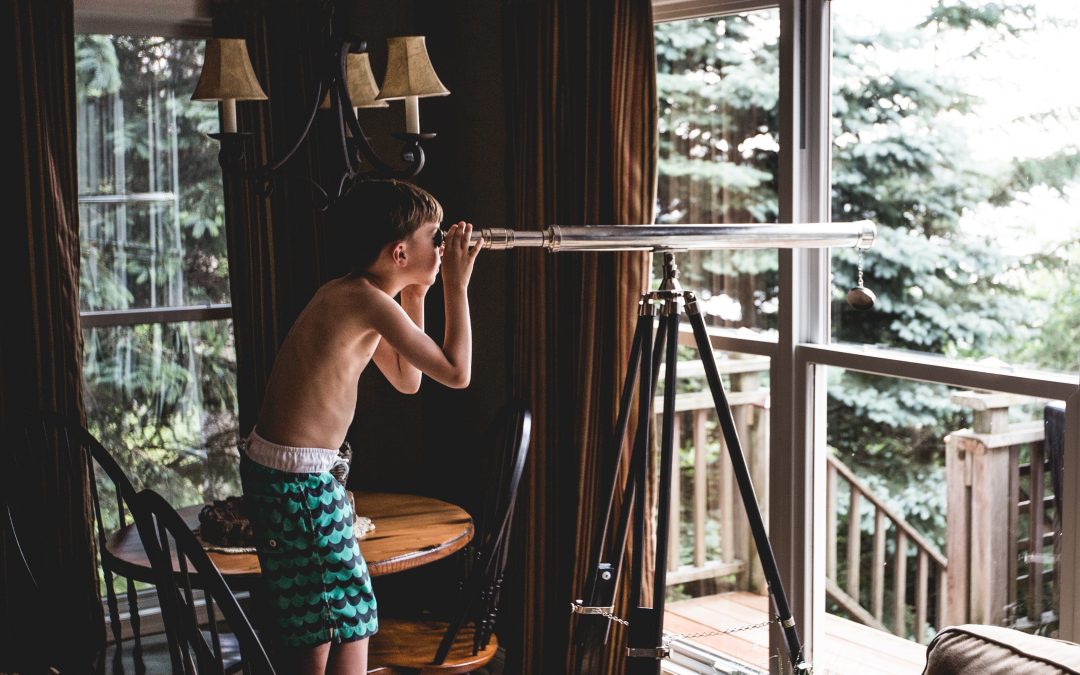
by Rachel Toalson | Crash Test Parents
“I’ve looked and looked and looked. Where could it be?”
It’s been three mornings of the same thing—he climbs out of bed late and almost misses breakfast, because there are LEGO pieces all over the floor and he can’t walk past them without building a miniature version of San Antonio’s Alamo. He’ll turn on an audio book, stretch out on the floor, and listen and build.
The problem is that there’s a deadline on mornings. This isn’t the case when school’s out, but it’s only the one-hundredth day of school, and so we still have another two hundred or so to go—which would make one think, if one were as gullible as I am—that maybe we would have gotten the hang of this by now.
Nope.
So there he is, playing with LEGO figures when there’s still a backpack to be packed, a lunch to be put together, shoes to be located. And the best part about it is he’s not very good at looking.
Yesterday morning he couldn’t find his shoes that were sitting under his desk, where he slipped them off while he was writing a thesis the other day (not really a thesis. But this particular boy will be well practiced at writing theses by the time he gets to college). He says one of his brothers probably shoved them under his desk as a joke, because he specifically remembers putting them where shoes go (“Where do shoes go?” I said. He just looked at me blankly, so, yeah, I think he’s telling the truth.).
Yesterday afternoon he couldn’t find the digital camera he got for Christmas to use in his filmmaking endeavors, and he ranted all over the house about how someone had taken it or stolen it or misplaced it (but that person was most definitely not him), and then when we found it on the table beside the couch, he, of course, had not put it there.
Last night he couldn’t find the soap container that was sitting on the edge of the bath tub, where it always is.
Today he can’t find his jacket. It’s right in the middle of the floor.
Once a week he can’t find a library book that someone—one of his brothers, probably—surely must have hidden on purpose. He can’t find this one specific LEGO piece, because they’ve all exploded on the floor and one looks so like another, but, actually, someone probably lost it (not him). He can’t find the CD player that’s still spinning because no one ever wants to press stop, only pause (“Can’t you hear the clicking, son?” “What clicking?”), which is hidden beneath the clothes he stripped off yesterday and left on the floor, because that’s where they belong. He can’t find his favorite Star Wars shirt because putting his clothes away after laundry day means stuffing them all into his drawers, instead of hanging them in his closet (one of these days, when he actually cares about the way he looks, he’ll realize that the “homeless” look isn’t all that compelling in the eyes of a young lady).
And it’s not just him. The rest of them got this not-great-at-looking gene, too.
“Where’s my scarf?” the 4-year-old says.
“It’s hanging around your neck,” I say.
“Where’s my backpack?” the 5-year-old says.
“It’s on the chair right behind you, where you laid it,” I say.
“Where’s Daddy?” one of the 2-year-olds says.
“You’re looking right at him,” I say. “How is it that you can’t see him?”
Kids just aren’t all that great at looking.
Husband would say they get this from me. “Have you seen my water?” I’ll say, and he’ll point to the banister in front of me, the most unlikely of places, which suddenly reminds me that I put it there a few minutes ago.
“Do you have the other keys?” he’ll say when we’re walking out the door. I’ll check my purse. “No,” I’ll say. He’ll look at me. And then he’ll pull my purse away from me, because clearly I’m incompetent at looking, and I’ll roll my eyes and mutter under my breath, “You’re not going to find anything. I’d be able to hear them,” and then out he’ll pull them. I have no idea how they got there.
“I can’t find his red folder,” I’ll say about the one boy missing a school folder.
“Did you look?” Husband will say, his voice muffled against the pillow because it’s still 6 a.m. and he likes getting up early.
“Yes,” I’ll say. “And he needs it today. There are important papers that need to go back to school.”
Husband will rouse himself from the bed and rifle through the billions of papers on our counter and miraculously find it at the bottom of the stack, where I swear it must have reappeared in the time between walking upstairs and now.
My Pride and Prejudice bag? I’ll say.
Probably in the closet, where it should be, Husband will say.
The sour cream? I’ll say.
Right in front of your face, he’ll say, grabbing it from the shelf that’s not actually right in front of my face but is more level with my forehead and above my line of sight.
My running shoes?
Downstairs in the basket, where they’re supposed to be.
Every now and then Husband will lose his wallet, and I’ll do a quick glance around the room, not see it anywhere, and already be on the phone with the credit card companies to cancel the two we carry, and he’ll walk back in the room with the wallet he found on the windowsill behind our blinds, where I wouldn’t even think to look (and why would I? What’s it doing there?).
I’m not entirely sure where this aversion to looking comes from. I blame it on the kids. I think I’m so overwhelmed with looking for things all the time that I just suffer from a condition called Looking Burnout, so when there’s something right in front of my face I don’t actually see it. One of the many hazards of having kids.
But something needs to be done about these kids and their sadly lagging looking skills. I’m not a find-this-for-me service. I’m not even a find-this-for-myself service, as you can see from the stories I’ve shared. So, eventually, someone is going to have to teach my kids how to properly look for something, and it’s most likely not going to be me. Which means it will probably fall to Husband.
Hey, you know what? We all have our own strengths. That’s part of what makes community important.
Now where did I put my computer?
This is an excerpt from This Life With Boys, the third book in the Crash Test Parents series. To get access to some all-new, never-before-published humor essays in two hilarious Crash Test Parents guides, visit the Crash Test Parents Reader Library page.
(Photo by Teddy Kelley on Unsplash)
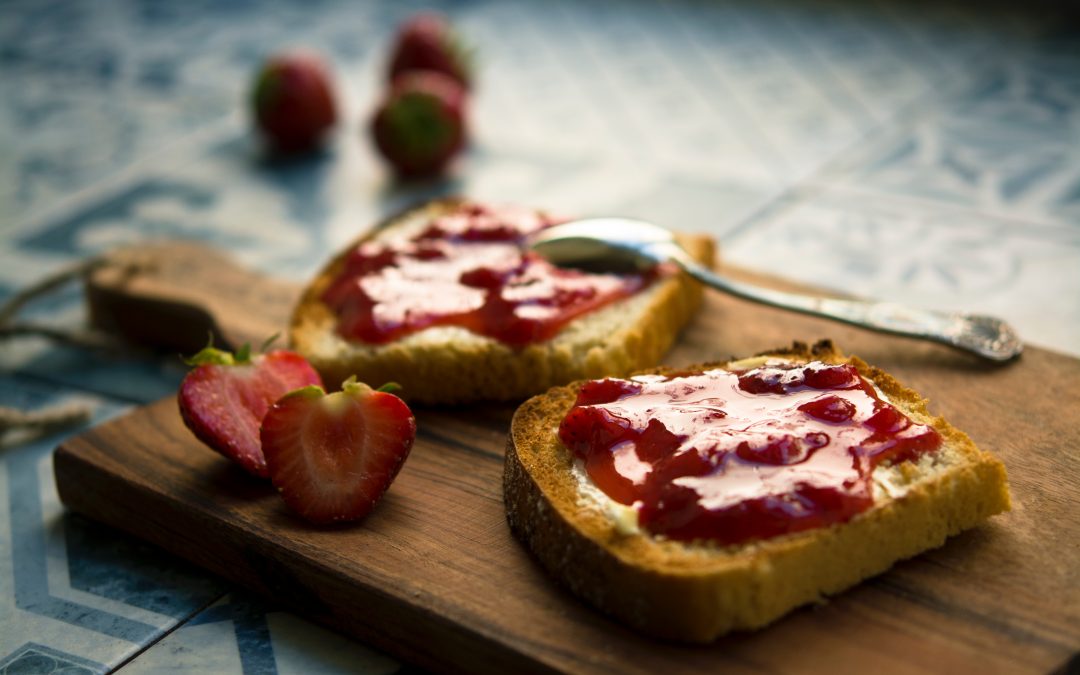
by Rachel Toalson | Crash Test Parents
There is something frightening that happens when kids start exercising their independence. They start doing things for themselves. Like washing hands. And getting their own drinks. And making their own food.
I say frightening, because what this inevitably does is it makes it ever more impossible to keep a tidy home. Because they will try to get water from the water filter, and they will accidentally miss the cup and make a puddle on the floor, and they won’t clean it up and will forget to tell anyone, and the only way you know about it is when you’re coming in to put the laundry in the dryer, and you slip and nearly die, or at least it feels like you almost died, if your heart has anything to say about it. And then you start laughing, because YOU ALMOST DIED and yet you still have to put the load of laundry in the dryer.
And there’s the bread they’ll try to use for making an after-dinner snack, except they don’t pay the least bit of attention to the crumbs they’re spreading all over the counter and the butter that was smeared into granite so effectively it was rendered completely invisible, and the only way you’ll know about it is when you put the oldest’s reading log on the counter, and the grease starts eating all the way through it and you realize it was only a matter of time before you started looking like THAT family.
And then there’s the washing hands, which usually results in water staying on too long and somehow not keeping to the boundaries of the sink, because they put their hands right up into the faucet instead of leaving enough space beneath it so water won’t splatter everywhere, and there are drops all over the mirror and their shirt. Then, of course, they miss putting the soap on their hands, because they’re not very good at aiming (just look at their toilet) and so every time the faucet is turned on for the next five days, it creates a bubble bath right there in the sink, and you’ll wonder, briefly, how you might be able to save all that soap and to use in their baths or something, except it’s hand soap and good mothers don’t use hand soap to wash their kid, except for that one time you were out of body wash and you thought, what the heck, it’s all made of the same stuff, and you did and the sensitive 6-year-old’s skin broke out and you felt terrible about it. Hypothetically.
Kids come into the world begging for independence. I see it in my infant, who has just started letting go when he’s standing anywhere, so eager to stand on his own and start walking that he doesn’t care that in the next three seconds he’s probably going to fall hard, right on his rump.
And after years of pouring their milk and wiping their noses and dressing them, we start begging for that independence, too (except when our work is gone and then we’ll miss it).
The problem is that independence comes with inconvenient spills that will drip all the way down into a cabinet of storage containers, and you’ll have to go ahead and wash all eight hundred of them. And it comes with snotty tissues lying around the living room, because he thought that when he used them to wipe his nose, you would throw them all away, not him. And it comes with a pile of clothes heaped in front of the closet, because all these shirts were the ones that “didn’t work out” or the ones that were holding on to the shirt he really wanted, and he doesn’t have enough time to hang them back up before school starts.
Independence means pencil shavings spread all over the entryway floor, because the 8-year-old was sharpening a pencil and then the 5-year-old tried and accidentally knocked over the entire sharpener and made the shavings go everywhere, and now the infant is happy that there are more things to put in his mouth. Independence means soap all over the bath rug because he’s just started taking showers on his own, and sometimes the soap squirt doesn’t quite make it in his hand, because he pushes too hard or too soft, but, hey, at least he’s using soap, which is more than I can say for the other third graders, judging by the way their classroom smells. Independence means way too many toys taken out, because he couldn’t decide what to play with, and he can reach all the toys and unlock the door by himself, and so he just chose, in a moment when you weren’t paying attention, to get them all out and save you the trouble. Except he didn’t really save you the trouble.
There are some things that will get worse before they get better, and they can usually be linked to independence.
Food messes are the worst.
When they decided they wanted to have oats with milk for a snack, because they enjoy eating raw oats drowned in 2 percent milk (gross), they thought surely they could do this themselves. I was putting the 3-year-old twins down for a nap and was not aware of their plans. They probably could have done it themselves, except they accidentally opened the bulk bag before taking it off the pantry shelf, and the oats spilled everywhere.
Those are the times you’ll want to take their independence back. Not really. Because I don’t want to be Cinder-Mama. But still. Maybe take it easy on the food, guys.
While it’s easier just to do things ourselves, it’s good for them to feel efficient in their own worlds. It’s also good for them to know that it’s okay for them to make those mistakes, and then learn how to clean them up.
As long as it’s not oats with milk. Or popcorn (no you cannot eat the seeds). Or water from the Brita filter in the fridge. I’ve nearly broken my neck three times, and that was just in a day.
There are some things I’d rather do.
This is an excerpt from The Life-Changing Madness of Tidying Up After Children, the second book in the Crash Test Parents series. To get access to some all-new, never-before-published humor essays in two hilarious Crash Test Parents guides, visit the Crash Test Parents Reader Library page.
(Photo by Jonathan Pielmayer on Unsplash)
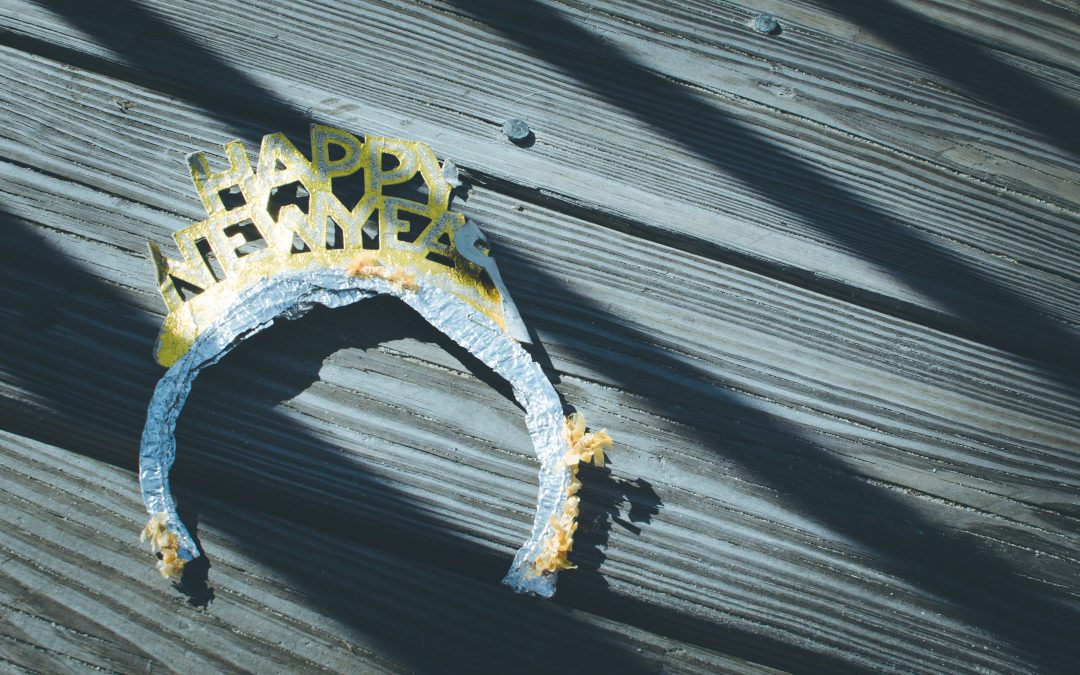
by Rachel Toalson | Crash Test Parents
The beginning of every year is a time in which goals, resolutions, our new ways of being—whatever you want to call it—have strong and resilient roots. Husband and I spend the last couple of weeks of every year goal-setting, because we believe it’s important to start the new year with a frame, even if that frame is dismantled within the first few days.
Which is generally what happens to our parenting goals.
This is mostly because children are so adept at taking our goals and shoving them. I’m convinced they make goals of their own, and this is what that process looks like:
We say: No more yelling.
They say: So much more yelling.
The first day of the new year is welcomed with such high hopes. We hope that we will be able to get through an entire day without yelling. This is our hope every year—mostly because we think the kids are another year older; surely they’ll be able to (a) tone down the noise and (b) stop making us so mad.
Nope. They try even harder. Not only that, but they’ve resolved to yell more themselves, which means when we’re having chicken (always a win) for dinner, but they don’t get seconds until they eat their spinach salad (never a win), they’ll yell about how unfair it is that they have to eat such disgusting stuff. When it’s time for baths, they’ll yell about how all their friends are still out playing. When their technology timer has clanged and they’re not finished with the game, they’ll yell about how we’re the worst parents ever because we put a limit on how much time they spend rotting their brains in front of a screen.
We say: This year we’ll eat fewer sweets.
They say: This year, we’ll sneak more sweets.
I’ve tried so hard to get rid of sugar in my diet. I’m not supposed to have it; it’s something that could cause heart disease for me, because I have a gene anomaly that prevents my digestive system from processing sugar anywhere but hips, thighs, belly (you can tell I have a hard time with this goal), and, more importantly, my (invisible) triglycerides.
Unlike me, my kids will find every opportunity they can to cram more sugar into their mouths. You’ll see evidence of this at holiday gatherings, when they hover around the dessert table hoping I don’t notice that a finger slid into the perfect lemon pie. You’ll see it at birthday parties, when they smuggle extra brownies while leaving a trail of crumbs on the floor that lead to their hiding place (at least they can find their way back out—if they can untangle themselves from the clothes mountain in their room). You’ll see it at school, where they’ll swipe an extra cupcake for their friend’s birthday—hey, it was free!
If we could all be so immune to sugar.
We say: More happy family moments.
They say: We’ll see about that.
So much of my life is about getting things done. Wash the dishes, fold the clothes, cram in a few hours of work. Husband and I both work from home, and it’s easy to let that work bleed into our every-day lives. So we always have this goal on our list: to soak up more happy family moments, without work-creep and rush, rush, rush.
The problem is that kids are kids. They’ll take three hours to tie their shoe, because they wanted to do it themselves. They’ll decide the tie they have, which they aren’t supposed to have, isn’t quite the right color and will spill all the ties (which, again, they aren’t supposed to have) all over the floor and think the Cleanup Fairy will take care of the mess. They’ll destroy the toilet and, by default, the bathroom walls, when we’re already half an hour late to church.
So much for New Year’s goals.
The other day, I walked into the kitchen, and one of my 5-year-olds was cramming a brownie into his mouth as fast as he could because he thought I was otherwise occupied. I almost said something, but, instead, I let him think he got away with it.
I may as well let someone in this house meet a goal this year. Because it’s certainly not going to be me.
(Photo by Jerry Kiesewetter on Unsplash)







